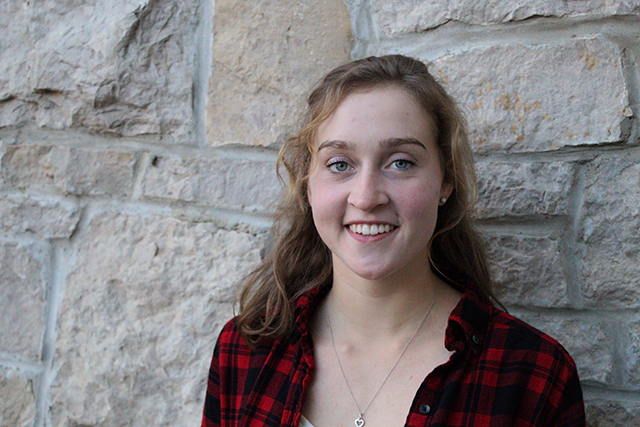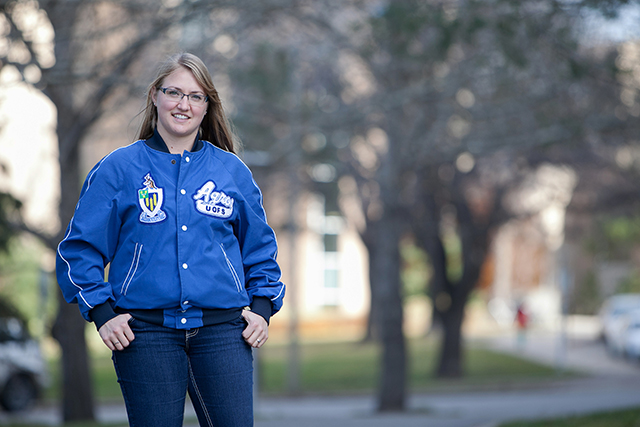
Students see value in LFCE
When Cassidy Maidment first came to the University of Saskatchewan (U of S), she was planning on chasing her dream career in veterinary medicine. But once she got to campus, a whole new world opened up to her through the university’s College of Agriculture and Bioresources’ animal science program.
By HenryTye Glazebrook“It was talking to the farmers that changed things. I've never met such a wide group of people where everyone is so passionate about what they do,” Maidment says.
“Talking with them and hearing how they talk about their work and their herds and their cows and different concerns — even the fact that in a herd of 200 cows they can look at one and tell you everything about it. It was all just amazing to me.”
Now in the second year of her program, Maidment is considering her future: will she double down on her newfound interests and explore bovine genetics and reproduction, or will she take a second look at a career in veterinary medicine?
It’s decisions like these that make her happy that the U of S and its partners are investing in the Livestock and Forage Centre of Excellence (LFCE), a new development that will bring together all aspects of livestock research under a single umbrella and unite a wide range of researchers, industry and students on a single, strengthened platform.
Maidment hopes that the LFCE will create more possibilities for interdisciplinary research that will keep her tuned in to both genetics and veterinary medicine — no matter which option she ultimately decides to pursue.
“I think the LFCE will give opportunity for collaboration. If I go into genetics, the fact that there's a possibility that that [genetic makeups] could also be impacted by diet and other things, it gives opportunity for collaboration and talking and having more minds come together,” she says.
 Fourth-year student Jacqueline Toews (left) is also excited about how the LFCE will expand her horizons as a student and beyond. Toews, who is studying crop science at the College of Agriculture and Bioresources, anticipates the centre will simplify communication between producers and researchers.
Fourth-year student Jacqueline Toews (left) is also excited about how the LFCE will expand her horizons as a student and beyond. Toews, who is studying crop science at the College of Agriculture and Bioresources, anticipates the centre will simplify communication between producers and researchers.
“If I continue with forage breeding, the great benefit will be working with the animal sciences [group] and finding out directly what they're looking for in feed," says Toews. She adds that if researchers aren't developing the right type of forage to provide the gains that are needed in production, then their research objectives aren't helping anyone.
“But if you're having that connection with those producing the cattle, you're getting the benefits of that relationship because you're getting immediate feedback. If you're wanting, say, grazing patterns on a particular forage — can it handle this intensive grazing or is it better for fewer cows on larger area — you can get that information. Then someone is benefiting from the feed as well.”
It’s this kind of interdisciplinary work that Toews is most excited about. She’s eager to discover how having stronger ties between different departments and facilities will create new learning opportunities — both traditional and hands-on — for students like her.
“Some of the things that come to mind are sustainable practices — that's a huge word in the industry right now. If you don't have the ability to measure that or to work with people to make it sustainable — not only in your part of the puzzle but in somebody else's pieces — it's not going to work entirely as a whole. That sharing of ideas is important,” she says.
“It's giving you that big picture, and with that, you start to connect your work with that of others.”
For Maidment, knowing that the U of S is making the LFCE a priority has her optimistic for what’s to come.
“It certainly seems like it opens a door for a lot of opportunity,” she says. “Knowing that once I graduate, there is a facility of this scale that has what I would need to pursue something like a master’s degree — that gives me a lot of confidence in my future, knowing that there are these resources right here on campus.”
Photo of Jacqueline Toews: Christina Weese

